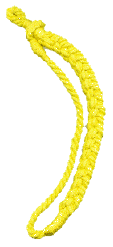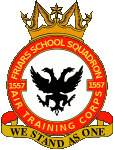Training
Junior Cadet
When a cadet first joins the squadron and until they are enrolled they are classified as a Junior Cadet. The junior cadet training involves learning about the history and organisation of the ATC, how to wear the uniform correctly and how to perform basic drill.
Second Class Cadet
Once enrolled as a cadet you are classified as Second Class Cadet and will be able to participate in most activities and wear the uniform, whilst working towards the first class cadet classification
First Class Cadet

To attain First Class classification you will need to pass a set syllabus of several subjects including:
- RAF
- History of Flight
- Airmanship
- Map Reading
- Initial Expedition
- Basic Radio Communications
Cadets are taught at the squadron by Senior NCOs who are typically older cadets who have already passed the exams and have studied the subjects in-depth.
After obtaining the First Class classification, cadets should understand more about how the ATC works,
and have a better knowledge of certain activities.
This is why First Class cadets are eligible to attend camp and participate in all activities subject to any specified restrictions e.g. age.
To fire the the No. 8 .22 rifle cadets must have completed a Weapons Handling Test which is also usually done during first class training.
Leading Cadet

Leading Cadet classification is attained by passing three subjects in a multiple choice exam paper. The subjects are:
- Basic Navigation
- Principles of Flight
- Airmanship II
Project work is an essential part of each classification after First Class. At least 25 hours should be completed towards each classification. Projects vary from squadron to squadron but often include aircraft modelling, aircraft recognition, photo boards or squadron recruiting materials.
Cadets can choose what type of project work they would like to do and most learning and project work is done on the squadron. Like the First Class classification, cadets are taught be senior NCOs but may need to do any home-studying for these exams.
Senior Cadet

Senior Cadet classification is attained by successfully passing two subjects in a multiple-choice exam. Although there are only two subjects they are more technical than the subjects at Leading Cadet level.
Cadets can choose any two of the following subjects to study:
- Air Navigation
- Propulsion
- Aircraft Handling
- Advanced Radio & Radar
- Pilot Navigation
- Airframes
- Operational Flying
- Satellite Communications
Exams are taken twice a year at the same time as the Leading exams with an external invigilator who is present at the squadron on exam night.
Staff Cadet

Staff cadets, as the name suggests, undertake roles on the squadron to support the staff, organise and run activities, and help to pass on their knowledge to junior members of the squadron.
To attain Staff Cadet classification and the yellow lanyard (shown right) it is necessary to have been enrolled for two years, be at least 16 years of age, have attended an annual camp and then successfully pass both parts of the staff exam.
Part 1 of the staff exam consists of two further subjects in a multiple-choice exam chosen from the same list of subjects as the Senior Classification.
Part 2 of the staff exam consists of an interview taken by an independent assessor who assesses the cadet's knowledge of the ATC and their ability to teach/instruct. During the interview the candidate must give a 5 minute presentation on a subject related to the air cadets.
As an added incentive cadets who pass Staff Cadet may also be awarded the full BTEC Certificate in Aviation Studies. This certificate is equivalent to 2 GCSE Grade A-C and is recognised by employers including the Royal Air Force.

